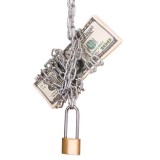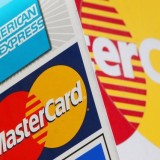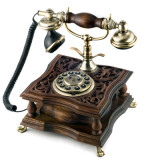This Page is No Longer Being Updated. Please Click Here to search for our current listings of the best prepaid debit cards.
Tag: Transactional account
-
CFPB Proposes Prepaid Card Rules
After a great deal of speculation, on November 13 the Consumer Financial Protection Bureau (CFPB) unveiled its proposed rules to govern the fast-growing prepaid debit card market. The proposed rules, which are open for public comment for 90 days, are an acknowledgment that more and more Americans utilize the cards to do their everyday banking.
The CFPB’s proposed rules are an effort to provide mainstream consumer protections to products that are no longer on the financial margins. “Consumers are increasingly relying on prepaid products to make products to make purchases and access funds, but they are not guaranteed the same protections or disclosures as traditional bank accounts,” CFPB director Richard Cordray said. “Our proposal would close the loopholes in this market and ensure prepaid consumers are protected whether they are swiping a card, scanning their smartphone, or sending a payment.”
As proposed, the CFPB rules would safeguard consumers under the Electronic Fund Transfer Act in ways that many credit card holders are already protected. Among the rules are:
• Access to account information: Prepaid card issuers must now either provide periodic statements of account activity or make information about account balances, transactions and fees available for free online. According to the CFPB, nearly half of all prepaid cards currently charge consumers to view their statements.
• Unauthorized charge protection: Today, when some prepaid cards are lost or stolen consumers have no protection for money lost due to fraudulent use of their account. This new rule would limit a consumer’s responsibility to $50 when a card is lost or stolen.
• Error resolution: Financial institutions must now work with prepaid card holders who find errors with their account. Specifically, the new rule obligates card issuers to investigate and resolve errors reported by customers in a timely manner. In cases when an issue can’t be resolved quickly, financial institutions must temporarily credit the disputed amount to a consumer until an investigation is complete.
• “Know Before You Owe”: One of the more nettlesome problems consumers shopping for a prepaid card encounter is an inability to compare and comprehend fees. This rules aims to change that by requiring standard disclosures, including fees for monthly account maintenance, ATM withdrawals, reloading an account and other important fees. In addition, the proposed rule also requires card issuers to make their account agreements online.
-
Which Plastic Is the Best? Debit Cards, Credit Cards or Prepaid Cards?
Long gone are the days when credit cards were the only choice for people in need of plastic. Here are some other options:
Imagine walking into a restaurant and being told that a menu is not needed because there’s only one dish being served. From time to time that happens — set price, or prix fixe, menus pop up at fancy restaurants and around holidays — but for the most part it would prompt many of us to head for the door. We all like choices.
Major financial institutions, like most restaurants, understand the need to offer different card offerings to meet the varied circumstances and tastes of their customers. As a result, many now offer three card options beyond traditional credit cards. Consumers can choose between secured credit cards, conventional debit cards and prepaid debit cards. Banks are tailoring their cards to meet the needs of different market segments, offering secured cards to young people and others eager to build good credit, issuing conventional debit cards to most checking account customers, and providing prepaid services to those who do not have bank accounts or who have other reasons for wanting prepaid cards. The choices assure almost all consumers can enjoy the safety and convenience of shopping or paying bills with bank or brand imprinted cards. Here’s a bit more about each option.
Secured Credit Cards
An inevitable part of life is to face financial stresses and setbacks. It just happens. And that has especially been the case over the past few years, as the economy has limped along and many have had to contend with lost jobs, lower wages and, often, a resulting damaged credit history. Secured credit cards are intended for people who have had some financial difficulties and thus have trouble qualifying for the sort of unsecured lines of credit typical with a standard credit card. In contrast with standard credit cards, credit building cards or secured credit cards require you to pay a deposit in exchange for borrowing privileges. Think of it this way: rather than the $5,000 or $10,000 limit many credit card companies grant their customers, secured credit cards generally set your limit at whatever amount you can deposit into your account upfront. So, if you open a secured credit card account with $1,500, then you have a credit line of $1,500.
Not all cards have such a strict formula for establishing credit lines, especially after you’ve proven that you reliably pay your bills. Qualifying standards are relatively lenient because that upfront deposit acts as collateral. In exchange, however, you face strict payment requirements and risk substantial penalties and interest hikes if you fail to use your card responsibly. The best secured cards require less than $40 in annual fees and charge less than 18 percent interest. The cards also typically assess late charges. The good news, however, is that prudent use of a secured credit card can help rebuild our your credit rating and help you qualify for an unsecured card (a “normal” credit card).
Conventional Debit Cards
“Free” checking is very seldom completely fee-free. When you open a conventional checking account, the majority of banks issue a debit card as part of their service. You may use a debit card to withdraw funds directly from your checking account on those occasions when you cannot write checks. You can also take advantage of online shopping and bill-paying services, which make spending and tracking your money far easier than writing out checks and combing through your register to balance your account. While conventional debit cards combine the convenience of a credit card with the security of a check, they can often come with fees. More and more banks are charging their customers monthly fees, such as overdraft charges, when they opt to use a debit card.
Prepaid Debit Cards
Prepaid debit cards offer the same convenience as credit and conventional debit cards without the risk of overspending. That’s because prepaid debit cards require consumers to deposit, or load, money into their account upfront. And the amount of money loaded onto the card is all that you can spend. Most prepaid debit cards require no application, and many charge limited or no monthly fees when you meet minimum monthly loading requirements. An increasing number of major financial institutions offer prepaid debit cards that carry all the same consumer protections as their conventional cards, and some are now including Federal Deposit Insurance Corporation (FDIC) protection as well. Consumers, however, must compare prepaid debit cards, because many providers still charge “maintenance” and “inactivity” fees. Mitchell Weiss, co-founder of the University of Hartford’s Center for Personal Financial Responsibility, tells U.S. News & World Report, “These cards prey on the under and unbanked consumers, who mistakenly believe they’re more economical than having a traditional checking account.” Fortunately, we make is simple to compare cards using our in-depth prepaid card analysis.
How to Choose a Card
Because they submit regular monthly reports to the three major credit bureaus, secured credit cards help you establish, restore or improve your credit. Tied to your checking account, conventional debit cards make routine transactions more convenient. Retailers and service providers typically accept debit cards even when they do not accept personal checks, and conventional debit cards make online shopping easy. With most conventional debit cards, however, you run the risk of overdraft penalties. For many families, prepaid debit cards can be a good choice, because they offer the convenience of credit and conventional debit cards while they make sure you stay on your budget. If you want to shift your family to a “cash only” economy, prepaid debit cards can be a good step in that direction.
No single card is the best choice for everyone. Your best choice depends on your financial situation and objectives. Many credible online sources provide tools for comparing cards and calculating which best satisfies your needs. And picking a card doesn’t have to be an either-or proposition; many families choose to carry and use one of each.
Originally posted on Huffington Post
-
AmEx Sees Surge In Prepaid Customers
Participants at last week’s Sanford Bernstein’s investor conference in New York City could be excused if they thought they had stumbled into a political rally. Giving the final formal presentation at the “Disruptive Trends in Financial Services” gathering, American Express Group President for Enterprise Growth, Dan Schulman, made an impassioned critique of the way the current financial system functions, or doesn’t, for the 50 percent of Americans who live paycheck to paycheck.
“There’s an epidemic of people being forced to the margins of our financial system,” Schulman said, citing statistics from the Federal Deposit Insurance Corporation (FDIC) that 70 million Americans are either unbanked or under banked, meaning they either lack a basic checking account or credit card. Tens of millions more, he said, are “unhappily” banked, forced to pay ever increasing fees for checking accounts that banks offered for free, in the past.
According to Schulman, this situation has forced far too many people to pay high fees and wait in long lines just to make basic financial transactions, like paying bills or cashing a check. Schulman gave the example of payday loans that aren’t immediately repaid incurring interest rates upwards of 500 percent. The belief that there is a fundamentally more equitable way to deliver financial services than what is currently offered by brick and mortar bank branches has led American Express to launch its low-cost Serve prepaid card and Bluebird checking account alternative. Schulman went so far as to say that it was a “defining mission” of American Express “to explode the paradigm that it’s expensive to be poor.”
If that is the mission at American Express, Schulman offered some pretty strong evidence that the company is making progress towards it. He told the conference that American Express has added almost 2.5 million new Bluebird and Serve customers since the beginning of the year. That brings the total number of customers to about 9.5 million. Additionally, Schulman reported that Serve and Bluebird customers have loaded about $1.9 billion into their accounts in the first four months of the year.
-
Are Prepaid Cards Making Checking Accounts Obsolete?
If you grew up in the 1970s, 80s or even 90s, you’ll remember how hard it could be to have a private phone call. Plenty of households had just one phone with a cord, which made it nearly impossible to avoid eavesdropping siblings and parents. Of course, we all know what happened to landlines when cell phone technology became mainstream: Even a couple of years ago more than half of American homes had already ditched them, a number that has certainly increased by now.A similar extinction awaits traditional checking accounts. Why? The same sort of disruption that pulled the cord on millions of landlines is already underway in the world of personal finance, thanks to the rapid emergence and improvement of prepaid debit cards. The numbers alone show that checking accounts have already begun their walk into history. Indeed, between 2009 and 2012, prepaid card transactions grew at an annual rate of over 33 percent, with the total number of transactions reaching 3.1 billion in 2012 alone. Fitch Ratings recently declared that the rise of prepaid card transactions is likely to continue.There are a number of reasons to believe that Fitch is right and all of those reasons are very bad news for checking accounts. In part, the reason prepaid debit cards will make checking accounts obsolete is because the accounts themselves have become less and less attractive. Long gone are the days when checking accounts could be counted on to be gratis. In fact, 41 percent of banks say they will not offer free checking this year, an uptick of 8 percent since just last year. To be fair, banks are choosing to add fees in response to federal legislation that reduced what they could charge for regular debit card transactions and left a big hole in their revenue.But an even bigger reason the days of checking accounts are numbered is significant improvements in prepaid debit cards themselves. Long the last resort of people who couldn’t obtain bank accounts or credit cards – the so-called “unbanked” – prepaid debit cards were layered with outrageous fees. Some prepaid cards are still very bad deals (especially those with celebrity names on them) but the influx of cards from large financial institutions like American Express have vastly improved the consumer friendliness of these products. In fact, earlier this month the Pew Charitable Trusts released a study that found that many prepaid cards are more affordable than checking accounts.Besides the fact that checking accounts can no longer be counted on to be free, prepaid cards increasingly offer other features consumers find attractive. Since you can only spend money that’s already in a prepaid account, it’s impossible to either bust your budget or incur hefty overdraft charges. According to Shane Tripcony of BestPrepaidDebitCards.com, “The most common statement I get from current prepaid cardholders is their appreciation for that fact that they no longer get hit by overdraft fees with their card. It keeps their spending in check and does not allow for unplanned-for expenses. Some prepaid debit cards allow users to tap into a fee-free nationwide ATM network and others permit cardholders to write checks. “The bill paying and check writing capabilities without the threat of overdraft charges is what really helps prepaid cardholders,” said Tripcony.Wireless provider T-Mobile can see the writing on the wall for checking accounts. In January the communications company jumped into financial services with the launch of Mobile Money a combination prepaid debit card, money management app and nationwide ATM network. For T-Mobile customers (non-customers can be subject to more fees), Mobile Money can be a basically free replacement for a no longer free checking account. And in a way, isn’t it appropriate that a cell phone company is helping to hasten the demise of a dinosaur every bit as obsolete as a landline?
Originally posted on TheDollarStretcher.com





